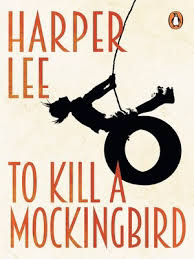AMERICAN LITERATURE AND HISTORY - INFLUENCES
The assertion that literature could decisively impact history and social movements would be somewhat pretentious. Primarily because crafting good literary works isn't akin to writing manifestos or calls to social action, regardless of their engagement. Good literature should primarily meet artistic criteria. Another reason lies in the fact that literature isn't as mass-oriented as, for instance, film, which undoubtedly has an advantage in influencing historical circumstances, although not to be exaggerated.
Literature has certainly had a certain indirect influence on social movements, sometimes prompting political establishments, intellectual elites, or parts of certain classes to ponder. Still, it cannot be claimed that this influence was decisive. A completely different question is the personal engagement of a writer in shaping history.
Concerning American literature, it is known that Harriet Beecher Stowe's work, "Uncle Tom's Cabin," had certain influences on the leading politicians of that time. This novel undoubtedly drew the attention of the public and the establishment to the issues of slavery and painful racial questions, sparking a public debate that resulted in the adoption of some anti-slavery measures.
Mark Twain's novel about Huckleberry Finn also drew attention to similar questions.
Exploring Upton Sinclair's impact could involve delving into his masterpiece, "The Jungle," which spurred significant changes in food and labor regulations, showcasing his role in the social justice movement.
Edith Wharton, on the other hand, could be highlighted for her work "The Age of Innocence," analyzing societal norms and constraints during the Gilded Age. Emphasizing her critique of high society and achievements in women's writing would enrich the discussion.
Theodore Dreiser's "An American Tragedy" has a pronounced social note, but it is challenging to say whether the novel or the film based on it, titled "A Place in the Sun," had a greater impact. It featured Montgomery Clift and Elizabeth Taylor.
Henry Miller, primarily due to the prolonged ban of his "Tropic of Cancer," first stepped onto the international and then onto the American scene. Still, that didn't prevent him from becoming an inspiration to many, not just writers, even decades later, including in the way of life found in his works.
American playwrights, Eugene O'Neill, Thornton Wilder, Tennessee Williams, shaped the theatrical scene, influencing societal awareness. I would highlight Arthur Miller, especially concerning influences and reflections of social reality, particularly evident in the plays "The Crucible" and "Death of a Salesman."
Nobel laureate John Steinbeck faced criticism for his socially engaged novel "The Grapes of Wrath." Eleanor Roosevelt, the first lady of America, defended it, admiring the literary skill of the great American writer. This, on her part, was a commendable move because the criticism went to the extent that Steinbeck's novel was "banished" and undesirable in some parts of America. Therefore, this could also be called the influence of literature on the establishment and the change that the same establishment undergoes under the influence of literature.
In the mid-20th century, with a unique voice on racial, social issues, and injustices stemming from political manipulation, extraordinarily talented African American writer Ralph Ellison spoke in his novel "Invisible Man." It's not a political novel but a lucid vivisection of a society where some human beings are "invisible." Questions of identity, racial division, and the tragic consequences arising from it will be addressed by Alex Haley in his novel "Roots," which will be the basis for a world-famous series. Nobel laureate Toni Morrison's work "Beloved" also seeks answers to the same and many other questions.
When it comes to the famous novel "To Kill a Mockingbird" by Harper Lee, it must be acknowledged that its influence and popularity were significantly contributed to by an excellent film based on this novel, in which Gregory Peck played the role of Atticus Finch masterfully.
Jack Kerouac had a significant influence on the Beat Generation with his novel "On the Road." Alongside him, the poet Ginsberg played a role. Later, Bob Dylan would come...
The hippie movement follows. Jim Morrison and the phenomenon of The Doors. John Updike addresses the middle class and the upheavals within it in the '60s and '70s. His works undoubtedly have a certain influence on those who read them, and their number was not small. The novel "Couples" is associated with the sexual revolution, but it is much more as it speaks to the crisis of family values, so it could be classified as moralistic novels. Little by little, we will come to Philip Roth and "American Pastoral"...
Several adaptations of F. Scott Fitzgerald's "The Great Gatsby" by Scott F. will contribute to the reactivation of the question of the "American Dream."
Contemporary author Jonathan Franzen speaks about the crisis of the family and other painful and less painful issues.
And so, there are many more examples; American literature is rich. However, like any other literature, it does not have the power or the goal to decisively shape history.












Vrlo sam zadovoljan ovom svojom kratkom retrospektivom.
ОдговориИзбриши